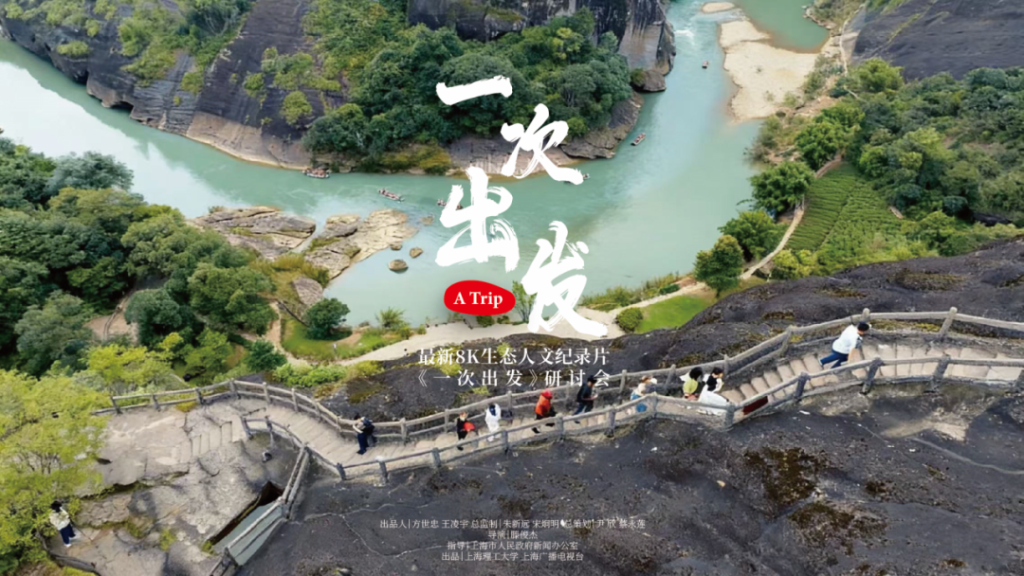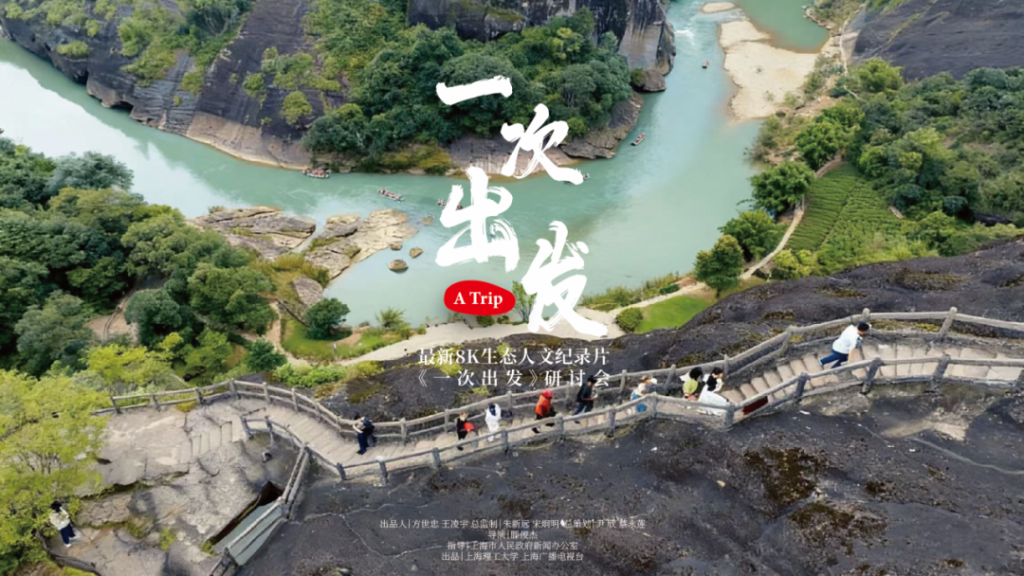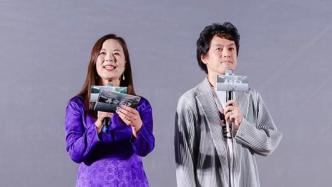
On June 5, the documentary film "Goodbye Yangtze River" held its premiere in Beijing. This documentary directed by Japanese director Ryo Takeuchi was officially released on May 24. In recent days, the film has started roadshows in various parts of the country and has received rave reviews wherever it goes. As the last stop of the roadshow, the Beijing premiere attracted many important guests.
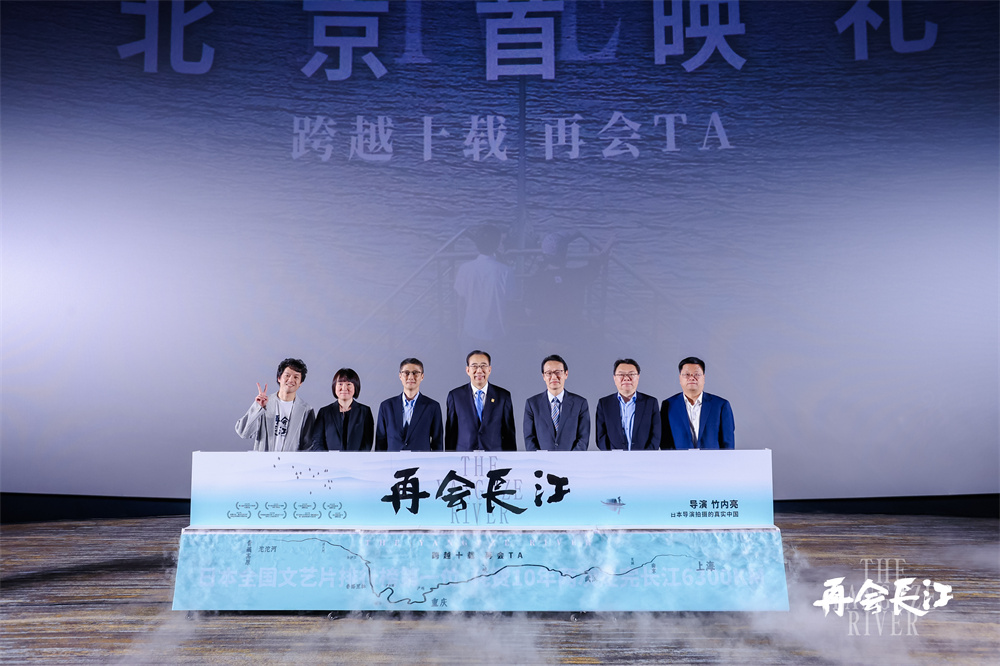
Director Takeuchi Ryo took a group photo with the guests
As the mother river of the Chinese nation, the Yangtze River has nurtured the splendid Chinese civilization over thousands of years. "Goodbye Yangtze River" was filmed between 2021 and 2022. The local customs and characters in the film are in contrast and reflection with another large-scale documentary "Journey Along the Yangtze River" filmed by Takeuchi Ryo for NHK ten years ago. While presenting the magnificent mountains and rivers of the Yangtze River, it also pays more attention to the inspirational struggles of the people along the river. With a strong breath of life and real feelings that touch people's hearts, it presents to the world a panoramic view of China that is both magnificent and long-lasting.
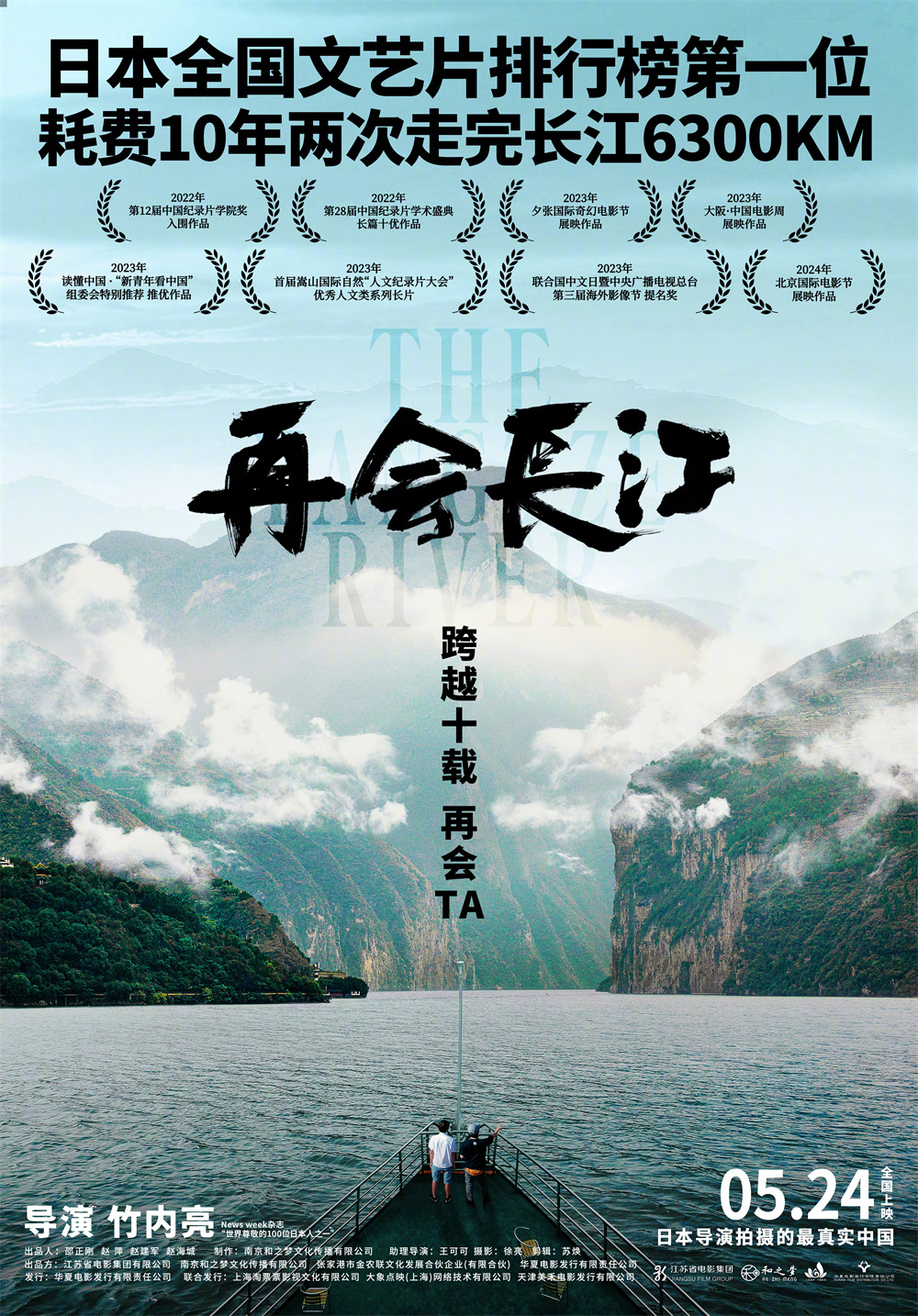
Poster of Goodbye Yangtze River
At the premiere, Wu Hailong, President of the China Public Diplomacy Association, praised the film, saying, "Mr. Takeuchi Ryo sees the Yangtze River from the eyes of a Japanese director. He is a foreigner, no! A foreigner who speaks Chinese and understands China, who knows and understands the Yangtze River. He used the story of Shangri-La Tsumu, whom he met ten years ago, to interpret the changes of the Yangtze River over the past decade. A drop of water can reflect the brilliance of the sun, and the changes in the lives of the Tsumu family from poverty to wealth, from material to spiritual, reflect the progress of this era and the pursuit and yearning of people in this era for a better life... I sincerely hope that Mr. Takeuchi Ryo can play a bridging role in promoting friendly relations between the Chinese and Japanese people and make greater contributions."
Dressed in a casual suit and speaking fluent Chinese, "I am a Japanese documentary director from Nanjing." Takeuchi Ryo's opening remarks still show his communicative nature as a "social bull" in the film. He said with a smile that "Goodbye Yangtze River" started its road show in Japan on April 12, and he has been wearing this outfit to interact with the audience for nearly two months. "It is very rare for a documentary to be released nationwide in Japan, and Chinese themes are relatively niche in Japan. Unfortunately, the cartoon "Detective Conan" was also released on April 12, but we still ranked first in the national ranking of Japanese art films; on May 24, the movie was released in China, and we encountered the cartoon "Doraemon" again. Fortunately, it has surpassed "Doraemon" in the word-of-mouth ranking released by the movie channel the day before yesterday. Thank you everyone."
"I have been interviewed by many Chinese media recently," said Takeuchi Ryo. Almost every Chinese reporter asked him the same question: What do Japanese audiences think of Goodbye, Yangtze River? "So this time I invited a very powerful Japanese, the Japanese ambassador to China, to talk about his feelings after watching the film."
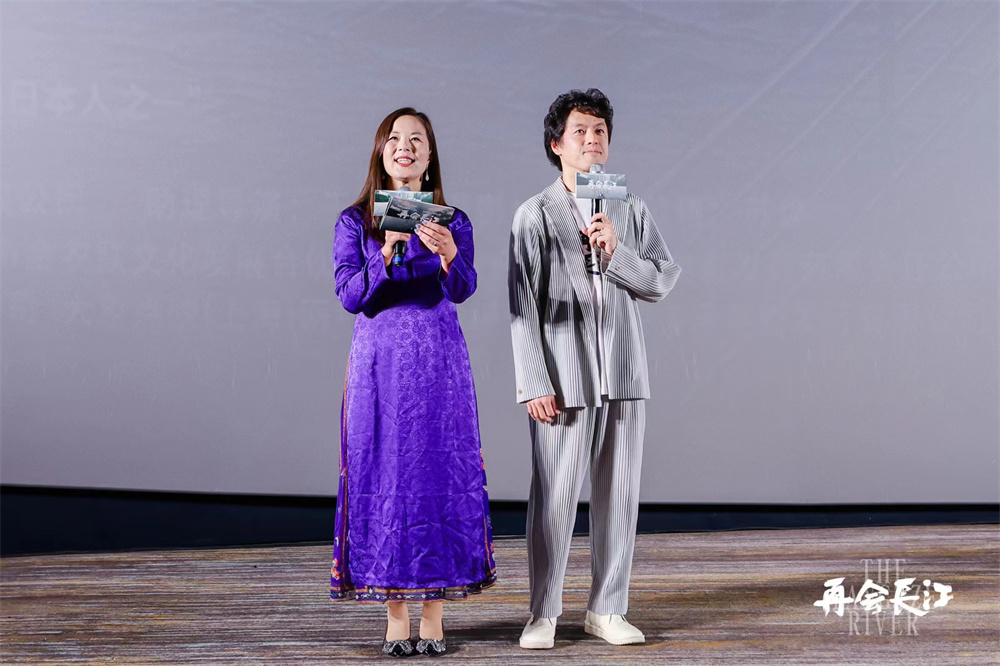
Director Takeuchi Ryo and producer Zhao Ping and his wife
Afterwards, Japanese Ambassador to China Kenji Kanasugi made a speech, "Goodbye, Yangtze River" has been released in Japan and received rave reviews. I sincerely hope that more Chinese friends can see this documentary, appreciate the magnificent natural scenery, and feel the subtle changes in people's moods. Director Takeuchi Ryo uses his work to show us his attitude of not following the crowd, insisting on seeing is believing, and recording truthfully, which is very admirable. There is a saying in Chinese and Japanese that 'seeing is believing', so I hope that Chinese audiences will have the opportunity to go to Japan like Director Takeuchi Ryo, and discover the true face of Japan with their own eyes, so that China and Japan can move towards a better future with deepening exchanges and understanding."
After listening to the ambassador's speech, Takeuchi Ryo asked Kenji Kanasugi in Japanese: "After watching the movie, where do you most want to go in the movie?" In this regard, Kenji Kanasugi said that the scene of the Three Gorges Dam elevator rising and falling in the film was very shocking, "I really want to go and see it."
In the post-credits scene of Goodbye, Yangtze River, the Tibetan girl Cimu and her beloved "Brother Dongdong" (Japanese actor and host Abe Tsuyoshi) reunited in a homestay in Shangri-La, which is unforgettable. At the premiere, Cimu, dressed in ethnic costumes, said that with the release of the movie, she also went abroad for the first time in her life and participated in a roadshow in many places in Japan.
Unlike the first time Chimu came to Shanghai in the film, she was shocked by the high-rise buildings. For the prosperity she saw in Tokyo and Osaka this time, she shyly gave a "OK" evaluation. Since she has devoted all her energy to running her own homestay in recent years, Chimu was impressed by the homestay hotel in Kusatsu Onsen in Gunma Prefecture. "The service industry in Japan is very thoughtful and professional. I remember when I went to the bathroom in the hot spring homestay, a Japanese waiter greeted me enthusiastically (bowed to indicate the direction), which scared me." Chimu expressed the hope that the audience present could keep the movie ticket stub, "Next time you come to Shangri-La, find me and show it when you check in to get a discount."
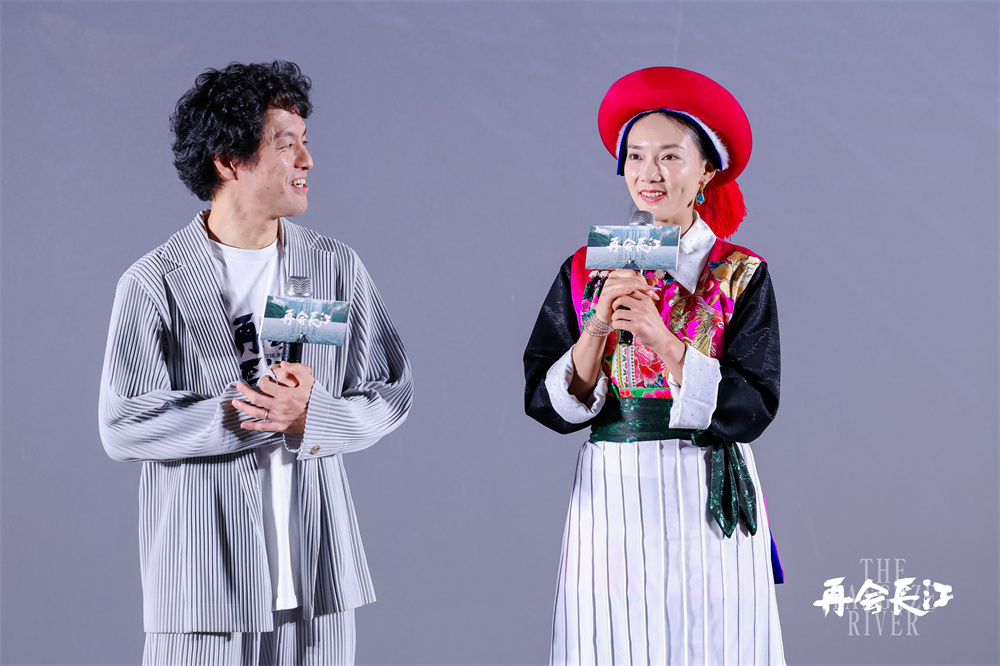
Director Takeuchi Ryo and Tibetan girl Cimu
During the post-screening interactive session, a Japanese student studying in Beijing asked the director, "Why are you so popular among Chinese people in China?" Takeuchi Ryo answered without hesitation that it was because he was "handsome", "I like Chinese people and Chinese culture. I think people are mutually attached, so first of all, if I like him, then the probability that he also likes me is relatively high. If I don't like him, he certainly doesn't like me either, it's that simple." As for whether he regretted not taking the first drop of water in the Yangtze River in person, Takeuchi Ryo said he didn't plan to take it again, "I'm old, and I'll be satisfied if the younger generation takes it. Please help me take a look, thank you."
Another college student from Lanzhou, Gansu asked the director if he had plans to film another Chinese mother river, another "Goodbye, Yellow River", and what the Yangtze River meant to him? Takeuchi Ryo said he had not filmed the Yellow River yet, "If I did, it should be called "Hello, Yellow River" or "First Encounter, Yellow River."
"What does the Yangtze River mean to me? Although I am not Chinese, I have loved the Yangtze River since I was a child. If the Yangtze River is the mother river of the Chinese people, then because I am a Chinese son-in-law, it should be my 'mother-in-law river'." Takeuchi Ryo gave a humorous answer while looking at his wife, Zhao Ping, the producer of "Goodbye Yangtze River". For the story of this couple, please read another report from The Paper: " 50 Years, 50 People | Takeuchi Ryo and his wife: Recording the real China and making some efforts for Sino-Japanese exchanges ".
